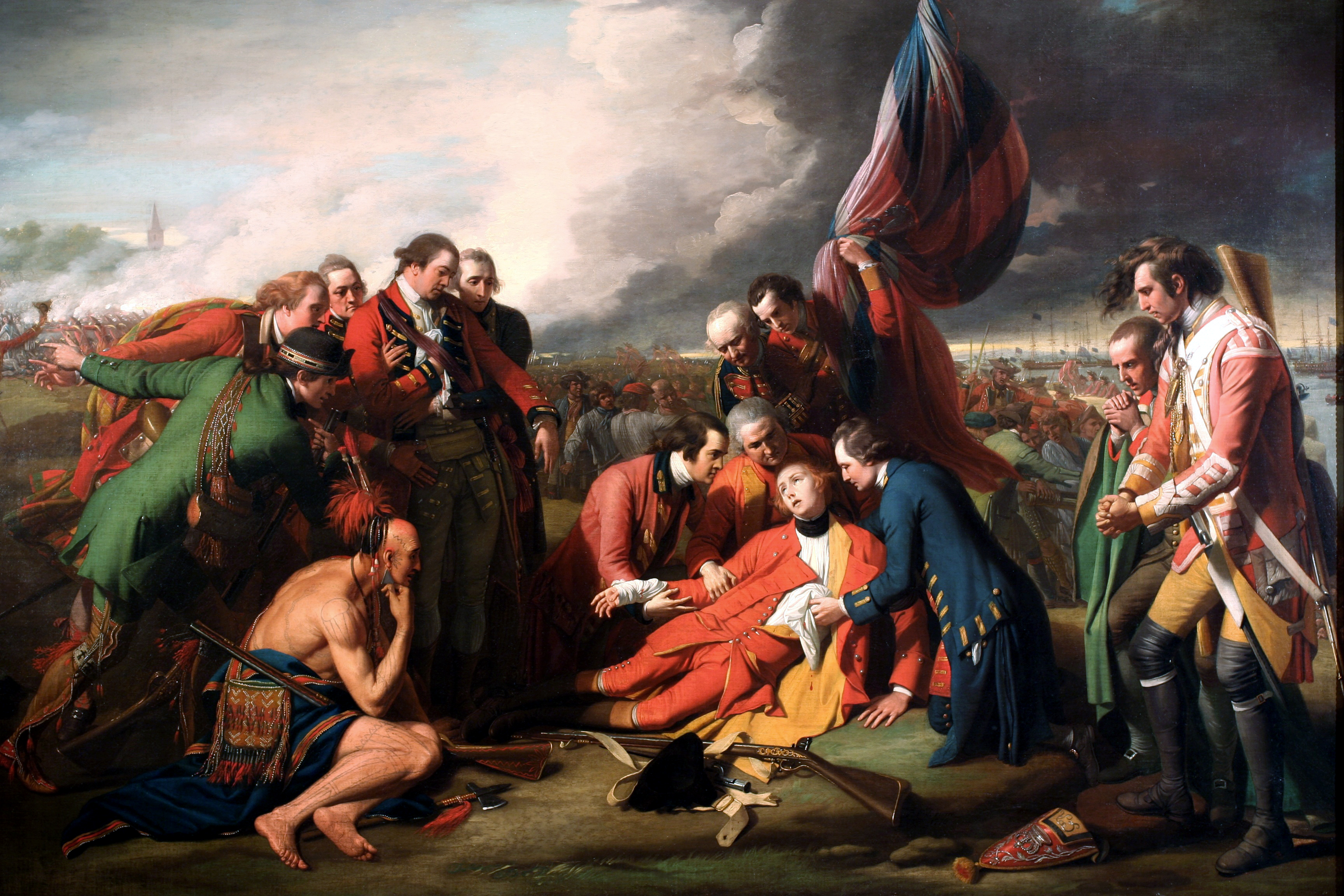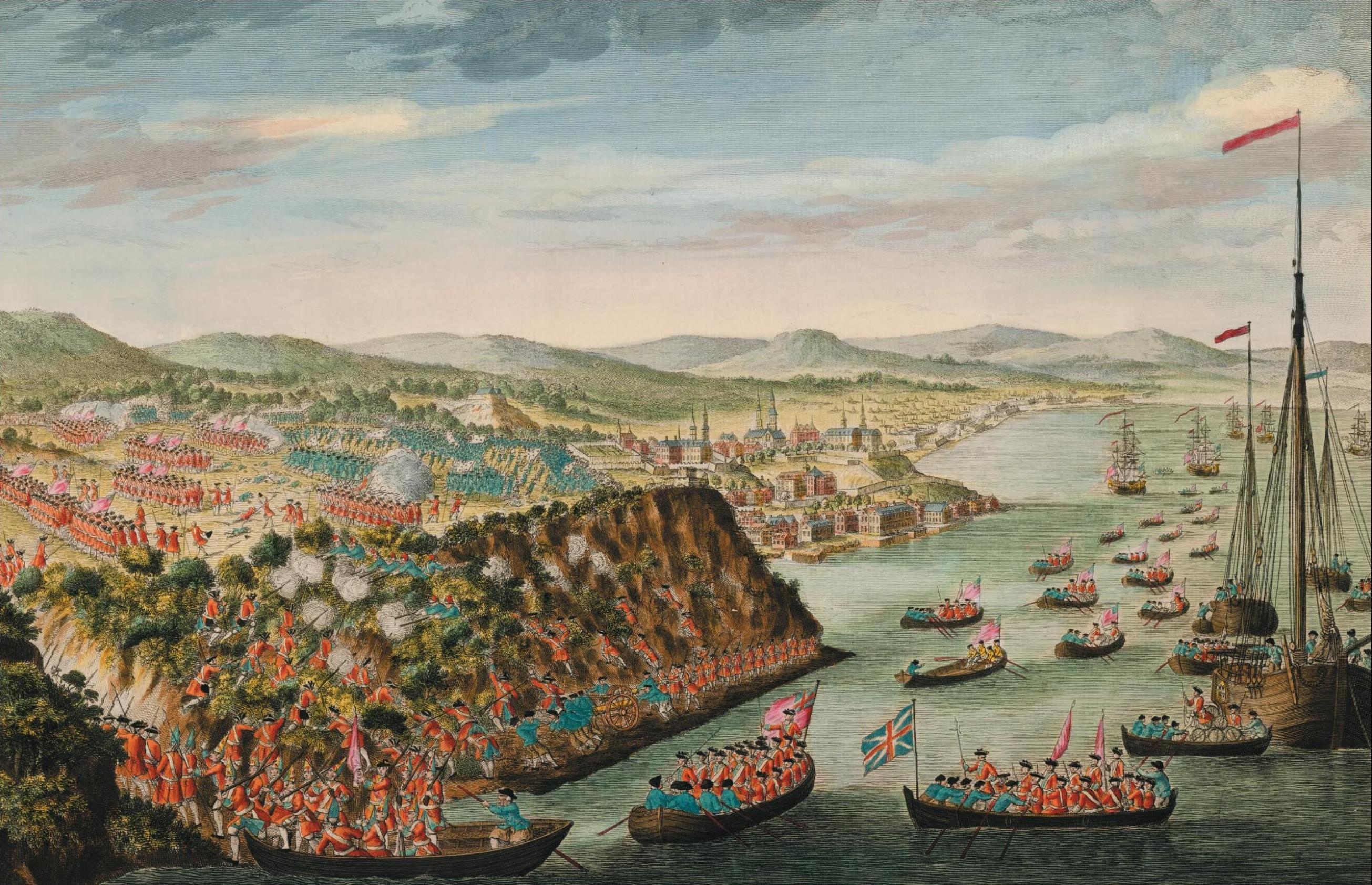My brother recently gave me a book for Christmas on great, important battles. He knew I would enjoy it as it combined my interest in history with my love for violence, as well as my habit to indulge in the occasional reading session when my eyes need a rest from the video games I have been undoubtedly been playing for far too long already. Feeling a war now and then would spice up this blog quite nicely, I flipped through looking for one to write on. To my surprise, here was the story of the attack on Quebec, something actually about Canadian history in a book summarizing the world - even though the players in it were French and British. It's nice to see Canada recognized, albeit loosely.
This is one of those battles that, even though it was just one of countless others between the French and British, is recognized as being one of those "TSN Turning Point" times in history when things start to shift. The British taking over Quebec was when the French really started to lose their ground and started to give in quite heavily to British rule in North America. You can place a lot of blame (or thanks, depending if you're cool with the French taking a back-seat) on the way Canada is today for the events around this time in history. Had Quebec held their ground and been able to reinforce from their homeland properly, there's a chance North America would have a very different look today.
 |
| Louis-Joseph de Montcalm; the battle-hardened, scowling face of a general. |
Anyways, time to get down to the facts. The Seven Years' War was between 1756-1763, but the fighting between the colonizers began a few years prior. It wasn't directly war, but since it was happening so far away from the mainland and communication was obviously going to be somewhat limited in comparison, a few battles out in North America didn't necessarily mean conflict back in Europe - if anything, it just meant a lot of uncomfortable tension. It's like if you're at school and get in a fight with another kid you're neighbours with; yeah, you fought, but when you get home it doesn't mean you're going to egg his house. I mean you might... you'll want to, that's for sure... but you might not.
What caused the fighting in the first place was the French ordered the local Natives to stop trading with the British to limit their influence in French territory. The Natives weren't really cool with this as they were quite satisfied being the bell of the ball as far as trading goes - having two sides vying for your goods mean you can jack up the prices a little - and they refused. That's when the joy of having guns comes in, and the French went in there to be a little more hands on and clear the British out by force, or at least the threat of it. They then built some defensive fortifications thinking the Brits may not take this so well. That's when they sent in George Washington (yeah, George Washington, no kidding) to ask the French to politely bring their baguettes and cheap wine back to their territory. Well, that didn't go over so great, and for the next little while they fought minor skirmishes, taking a fort, then having the other side take a fort back, and rinse and repeat.
 |
| A depiction of Wolfe's death. I find the way the Native guy is just chilling there watching hilarious. |
 |
| A soldier drew this after the battle. Apparently he didn't like the idea of a 174 foot cliff, so he made it like... fifteen feet. |
Long story short, they managed to scale the walls, and much to the surprise of the remaining Quebec defenders, there were suddenly 3500 Brits outside the gates, albeit stretched across a very large line with no clear manner of retreat. Montcalm, shockingly out of character, decided to leave the gates and charge them on the open Plains of Abraham. The idea was to attack quickly before they were prepared and locked into a proper fighting position. However, the French that remained to defend Quebec were still large in number but poorly trained militiamen, armed with long rifles rather than muskets, much better for long rage accuracy but take much longer to load. The British on the other hand were all of their best soldiers, armed muskets with two shots in the barrel to obliterate anyone in close range. The advancing French were absolutely slaughtered, and after three months of siege, the battle lasted only fifteen minutes, both generals lying dead on the battlefield. The French surrendered shortly after.
Later, back in Europe, massive naval defeats prevented reinforcements, and Canada eventually fell into British hands, making you wonder if the result was inevitable. I do wonder what would have happened in that battle had they not believed the French-speaking British soldier while climbing up the cliff. I guess he really was a... Wolfe in sheep's clothing.
Famous Historical Figures Say the Darndest Things!
- "Now, God be praised, I die contented." Wolfe's last words as he died on the battlefield, after learning of the French retreat.
- "I am happy I shall not live to see the surrender of Quebec." Montcalm after realizing his defeat.
No comments:
Post a Comment